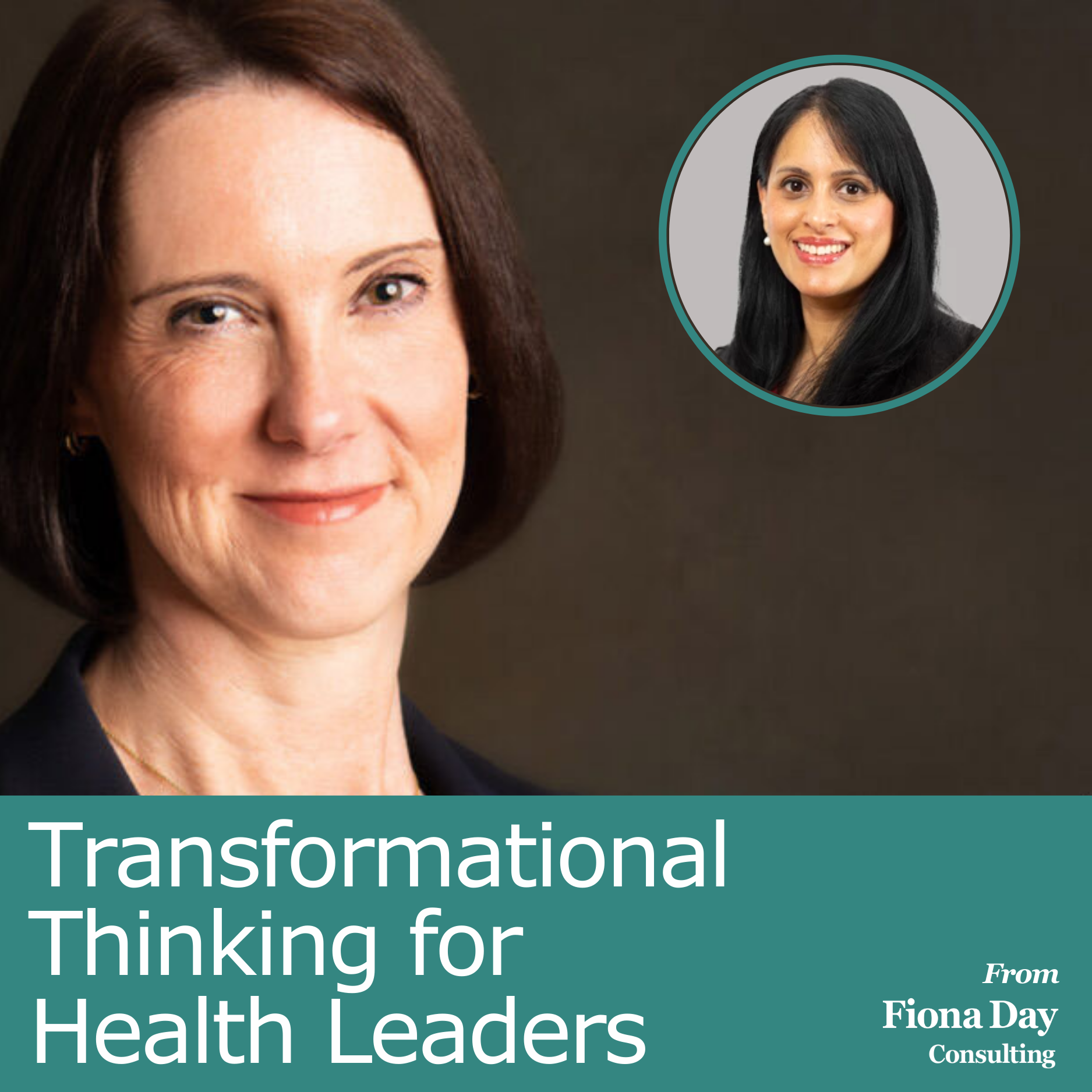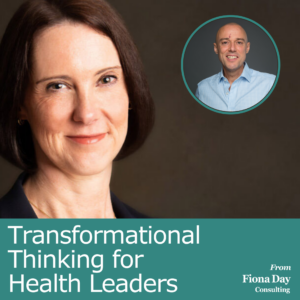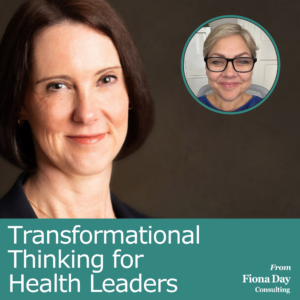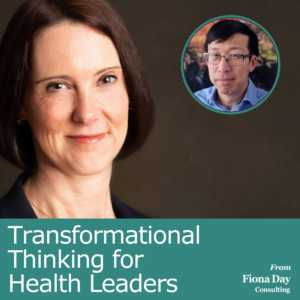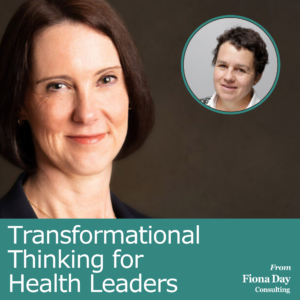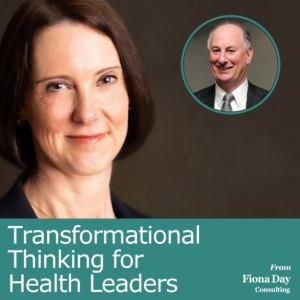In healthcare, stepping into leadership can be both exhilarating and daunting. As clinical responsibilities meet strategic oversight, healthcare leaders often find themselves juggling new challenges, from managing teams to navigating organisational change. Recently, I had the privilege of speaking with Dr. Girija ‘Gij’ Anand, an experienced consultant clinical oncologist and Associate Medical Director, on my podcast Transformational Thinking for Health Leaders.
Gij shared her journey of growth, mentorship, and transformation across roles. Here are some of the key insights from our conversation—insights that will resonate with any healthcare leader striving to lead effectively while staying true to their values and purpose.
Listen to the Podcast Here
The Early Steps of Leadership: Embracing New Roles
Early in her career, Gij found herself on a fast track to leadership. Just one year into her role as a consultant, she was encouraged to step up as a clinical lead—a responsibility she hadn’t anticipated. She reflects on how this early push shaped her leadership path and the value of being “talent-spotted” by senior colleagues who saw her potential.
Conquering Imposter Syndrome in Senior Roles
As Gij transitioned to the role of Associate Medical Director, she faced a familiar challenge: imposter syndrome. Suddenly, she was managing governance and professional affairs across the entire trust, following in the footsteps of a respected predecessor. “I realised I had a lot of learning to do and very fast,” she shared. Her strategy? Embracing continual learning by taking relevant courses, seeking mentorship, and engaging in leadership coaching.
Imposter syndrome is a common feeling among healthcare professionals stepping into senior roles. It can stem from the gap between clinical training and leadership responsibilities, particularly in roles that require handling complex organisational issues.
Building a Support Network and Asking for Help
Gij didn’t navigate her leadership journey alone; she built a strong network of colleagues and mentors who supported her during transitions. She also emphasises the importance of recognising when to ask for help—a skill many leaders find challenging.
In healthcare leadership, cultivating a supportive network and building relationships across teams can be the difference between success and burnout. Having trusted colleagues to turn to for guidance allows leaders to make better-informed decisions and eases the strain of demanding roles.
Balancing Clinical and Leadership Responsibilities
Maintaining a balance between clinical duties and leadership demands is a constant challenge for Gij. Like many health leaders, she found that effective change requires direct involvement. “To lead people, walk beside them,” she quoted from Lao Tzu. But balance comes at a cost, and early in her career, she found the blurred boundaries between work and home life taking a toll.
To achieve balance, Gij has learned to set clear boundaries and schedule time for self-care, exercise, and family. Carving out “me time” and prioritising well-being aren’t just personal goals; they’re essential leadership strategies. After all, radical self-care allows leaders to support their teams and patients more effectively.
Leading Through Change: Mergers and Transformational Leadership
Recently, Gij has taken on the complex task of leading an oncology integration plan across two merging trusts. Although she initially hesitated to take on this role, she realised that her collaborative leadership style and strong relationships across teams were precisely what this challenging project needed. By working alongside leaders from both organisations, she’s been able to create a distributed leadership model where each voice is heard, and each department has a stake in the integration’s success.
Her experience shows how important it is to communicate transparently, encourage team ownership, and bring diverse perspectives together—especially during major transitions like mergers.
Key Takeaways on Leadership Styles
As Gij discovered through a 360-degree leadership feedback process, her democratic style was one of her strengths, though colleagues also noted her effectiveness as a visionary and evaluator. Sometimes, we don’t see our own hidden strengths until they’re pointed out by others. For Gij, listening deeply and bringing people together are at the core of her leadership, yet she’s also recognised her capacity to lead with a vision that others hadn’t noticed before.
This insight reminds us that effective leaders flexibly adapt their styles to meet the needs of their teams and situations. Leaders who listen, reflect, and encourage diverse input create a foundation of trust and respect.
Listen to the Podcast Here
Closing Reflections
Gij’s journey is a testament to the resilience, adaptability, and courage needed in healthcare leadership. She reminds us that stepping into leadership requires us to be both learners and teachers, to build strong networks, and to support our teams with authenticity and care. As healthcare leaders, let’s reflect on how we can integrate these insights into our own journeys.
If you’re inspired by Gij’s story and want to continue developing as a leader, remember that every step forward is an opportunity for growth. At Fiona Day Consulting, I specialise in leadership coaching tailored to the needs of healthcare professionals. Explore my resources to support your career and leadership journey.
Reflective Questions for Health Leaders
1. Have you ever been encouraged into a leadership role before you felt fully ready? What qualities did others see in you that you may not have recognised in yourself? Recognising potential early is a powerful reminder for healthcare leaders to trust the feedback of others and to look for leadership qualities in their own teams. When we encourage emerging leaders, we build stronger departments and set the stage for resilient healthcare organisations.
2. In your own journey, when have you felt the weight of imposter syndrome, and what steps did you take to overcome it? Remember, seeking out new skills, leaning on mentors, and embracing coaching can be transformative tools for every leader. They provide fresh perspectives and reinforce confidence, helping us feel equipped to lead.
3. Who is in your support network, and how can they help you manage leadership challenges more effectively? Are you able to ask for help when needed? Asking for help is not a sign of weakness; it’s a hallmark of strong leadership. It signals humility, confidence, and commitment to achieving the best outcomes for patients and teams.
4. How well do you balance clinical and leadership duties? What changes could you make to protect your personal time and prioritise self-care? Maintaining this balance isn’t easy, but by prioritising well-being and building trusted teams, leaders can sustain themselves for the long term and model resilience for those they lead.
5. What’s your approach to leading through organisational change? How do you ensure that all voices are heard and team morale stays high? Mergers and integration require deep trust and collaboration. By empowering leaders within each department, Gij is fostering a culture of trust that will be essential for the successful integration of services and improved patient outcomes.
6. What leadership styles do you naturally gravitate towards, and how could expanding your range of styles improve your effectiveness? Understanding our strengths and style as leaders can help us harness our unique qualities and lead authentically. As Gij shows, leadership is as much about self-discovery as it is about guiding others.
Dr Fiona Day is the world’s only Leadership Coach with advanced coaching psychology, medical and public health qualifications (MBChB, FFPH, BPS Chartered Psychologist in Coaching Psychology, EMCC Master Practitioner Coach & Mentor) and is in a unique position to help you and your teams to flourish. Fiona specialises in coaching medical and public health leaders, is a coach Supervisor, and an EQA Foundation Award Holder. Get 3 hours of FREE CPD with Fiona’s Health Career Success Programme here. Book a free confidential 30 minute Consultation with Fiona here. Subscribe and listen to her Podcast ‘Transformational Thinking for Health Leaders’ here.

